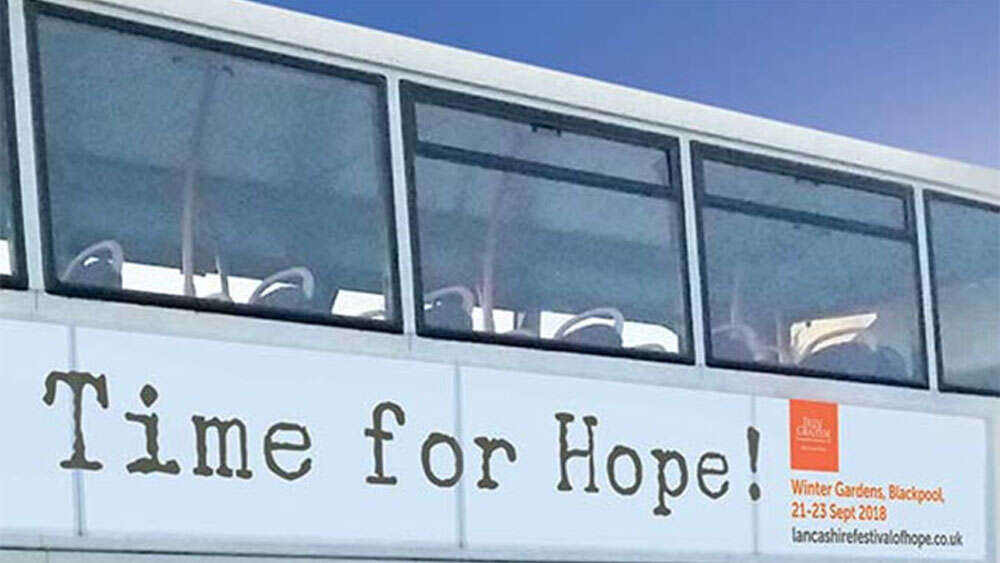A northern England council has agreed to pay damages after it was taken to court for removing advertising that promoted a Franklin Graham campaign, citing his religious beliefs on traditional marriage.
The simple bus ads read “Time for Hope”, and were promoting the ‘Lancashire Festival of Hope”, an evangelistic campaign by Graham, son of the late famed evangelist Billy Graham, in 2018. They were ordered to be removed following complaints about Graham’s views on marriage and a campaign by the local LGBTIQ community.
Now the local authority Blackpool Borough Council and Blackpool Transport Services Limited have agreed to pay damages to settle the case.
The settlement provides
- A clear apology.
- £70,000 (SA95,142) to cover legal costs incurred by the Festival.
- £25,000 ($A 33,980) in “just satisfaction” damages.
“This is an important moment for religious freedom in the U.K.,” Franklin Graham said. “We’re grateful to God for the final outcome of this case and for what it will mean for churches and Christians across the UK in the years ahead.”
The settlement follows a judge ruling in April that the Borough Council and Blackpool Transport Services had violated the Equality Act and the Human Rights Act.
Blackpool is a traditional convention site that hosts major conventions for both the Labour and Conservative parties. One Councillor is quoted in the case summary as saying, “If we were to vet conferences that we disagree with, then we could not host the Tory’s [sic], and we would certainly not turn them down.” And another “I would be at the front of any protest if this bile spewing preacher turns up in Blackpool.”
The judge found that both defendants are public authorities and bound by the Human Rights Act – and the European Charter of Human Rights. Article 9 provides for freedom of thought, conscience, and religion and the right to manifest (show) religion. Article 10 provides for freedom of expression. The judge found that the ad ban had breached both these rights.
The judge found that the defendants had taken the side of the complainants (the LGBTIQ protestors and others) rather than seek to balance the rights of the Christians supporting Graham and the complainants.
She also noted that banning a specifically “anti-gay” ad would have been a proportional response to the concerns of the LGBTIQ community.
The judgement balances the offence to Christians caused by the removal of the ads against the offence to the LGBTIQ community. The judge Franklin Graham’s views on marriage to be expressions of religious belief (and therefore subject to protections) despite the offence they cause to some people.
The public apology says, “We accept that the advertisements were not in themselves offensive. We further accept that in removing the advertisements we did not take into account the fact that this might cause offence to other members of the public and suggest that some voices should not be heard. We also regret that we did not consult with the organisers prior to taking our decision.
“We accept the findings of the Court that we discriminated against Lancashire Festival of Hope because of the religious beliefs of Franklin Graham and in doing so interfered with Lancashire Festival of Hope’s right to freedom of speech.”
Email This Story
Why not send this to a friend?



